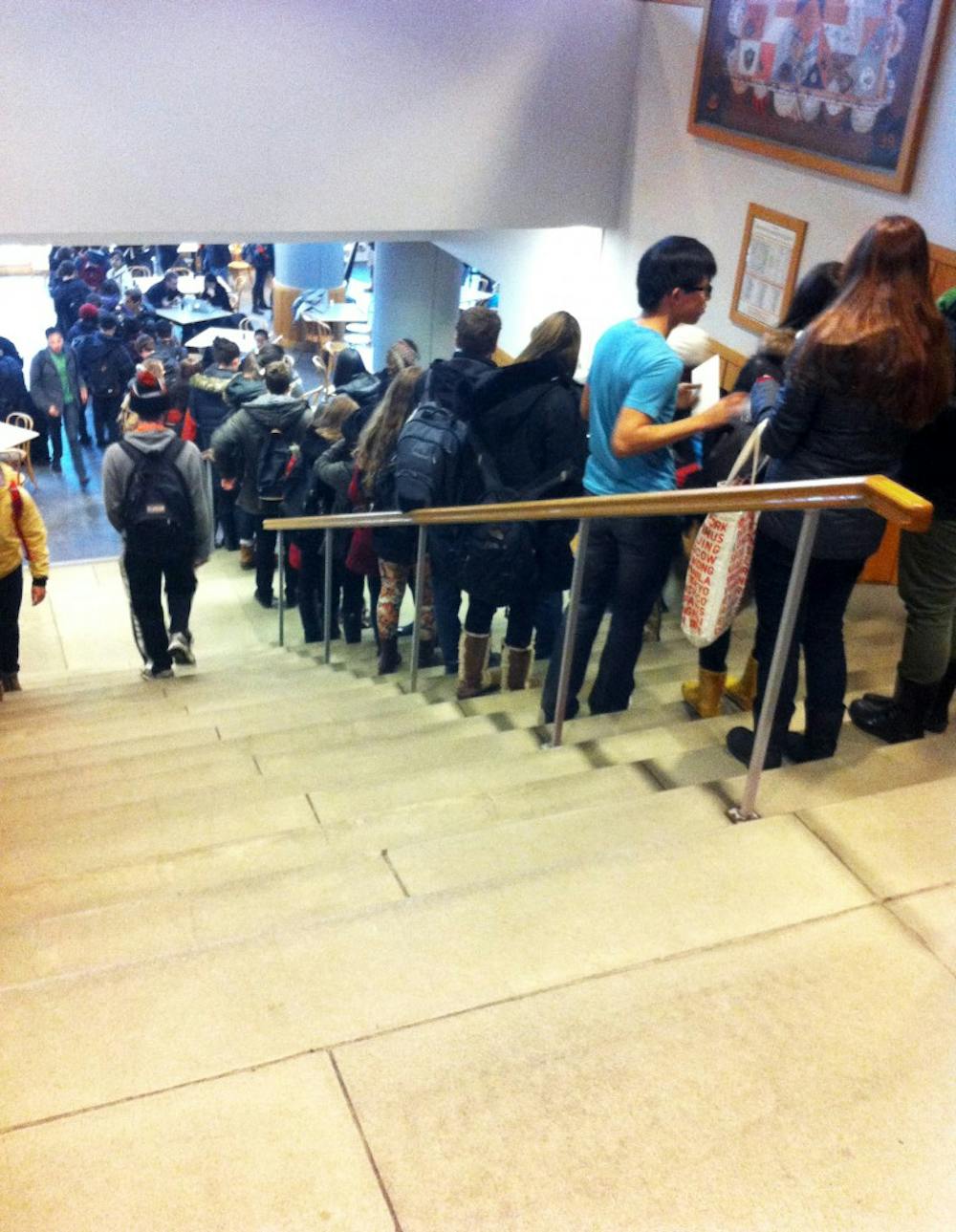1,959 students were vaccinated against meningococcal-B on the first day of the vaccination campaign, according to University Spokesperson Martin Mbugua. As of 4:30 p.m., the number was 1,261. There was a small number of students who experienced adverse effects, although these effects were within expected ranges.
The vaccination campaign began Monday, lasting from noon to 8 p.m., and will continue on the same schedule until Thursday. The vaccine is being administered in Frist Campus Center.
The vaccine is available to undergraduate students, graduate students living in dormitories and community members with medical issues that predispose them to contracting the disease.
“It's going great, the turnout has been great, the response has been great,” Head of Meningitis and Preventable Diseases Branch of the Centers for Disease Control and Prevention Dr. Tom Clark said at Monday’s Council of the Princeton University Committee meeting regarding the first day of vaccinations.
The University has imported 12,000 doses of Bexsero, a vaccine still unlicensed in the United States that combats meningitis B, Clark said.
In order to receive the vaccine, students are required to sign a consent form prior to receiving the vaccine. The form authorizes the University to release medical records including, if deemed necessary, names and personal information, to the CDC, Food and Drug Administration and other health and regulatory authorities, as well as the manufacturer of the vaccine, Novartis.
Nevertheless, the University will try to protect students' privacy by “de-identifying” information as much as possible, Environmental Health and Safety Director Robin Izzo said.
Though no country in the world currently recommends routinely administering Bexsero, the CDC, Clark said, is comfortable with administering the vaccine to the Princeton community based on what they have learned about the vaccine in the last few years.

The goal of the vaccinations is to immunize as many students as possible to create “herd immunity,” Clark noted, referring to the threshold number of people who must be vaccinated in a population to sufficiently decrease the risk of transmission for each person.
In a separate interview, Clark noted that it was unclear at this time what proportion of the Princeton population needed to be vaccinated in order to achieve herd immunity, as this is the first instance of the vaccine being used against an outbreak.
“We don’t completely know. We know we need high coverage because the goal is to raise the level of immunity in the population, to interrupt transmission and tip the balance in favor of this strain just going away,” Clark said.
The CDC hopes that this year’s vaccination will be adequate to solve the outbreak at the University, and no predictions regarding whether next year’s freshmen will contract the disease can be made at this time, Clark said.

“Will [meningococcal-B] continue and cause disease in next year’s freshmen? We hope not … We will be very vigilant,” Clark added.
However, students should continue to exercise caution and maintain careful hygiene practices after receiving the vaccine, Executive Vice President Treby Williams said. Students should also be sure to receive the second dose of the vaccine, she added.
“Probably the best defense at this point is students all going home for the holidays and the breaking up of the social circles where it might be transmitted,” Clark said.
Students who received the vaccine said that their concerns regarding the side effects of the vaccine were negligible compared to the effects of the disease. Many students also expressed that safety is a priority.
“The risks for meningitis are way worse than anything that could happen because the vaccine isn’t approved yet,” Laurel Easterling ’17 said.
Most people she knows are getting the vaccine, she added.
Another student reported feelinglightheaded and dizzy, as well as increased arm pain about six hours after receiving the vaccine. The student was granted anonymity to discuss personal health information.
The student went to McCosh, where he was informed that his side effects were no cause for alarm.
"There were a number of students who were also there at the same time also experiencing symptoms of dizziness or lightheadedness," the student added.
Senior writer Anna Mazarakis and Managing Editor Emily Tseng contributed reporting.








